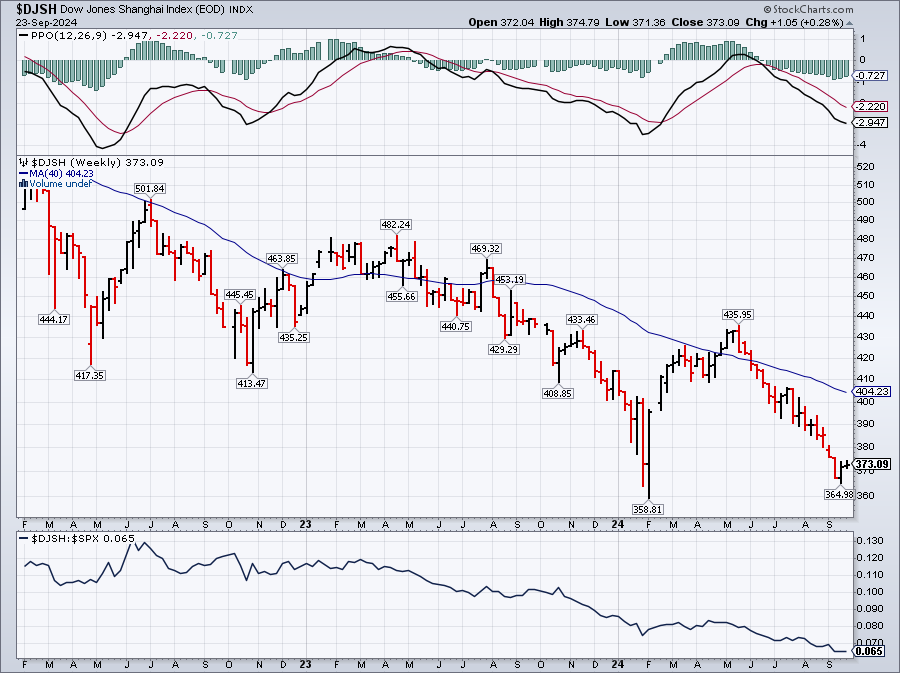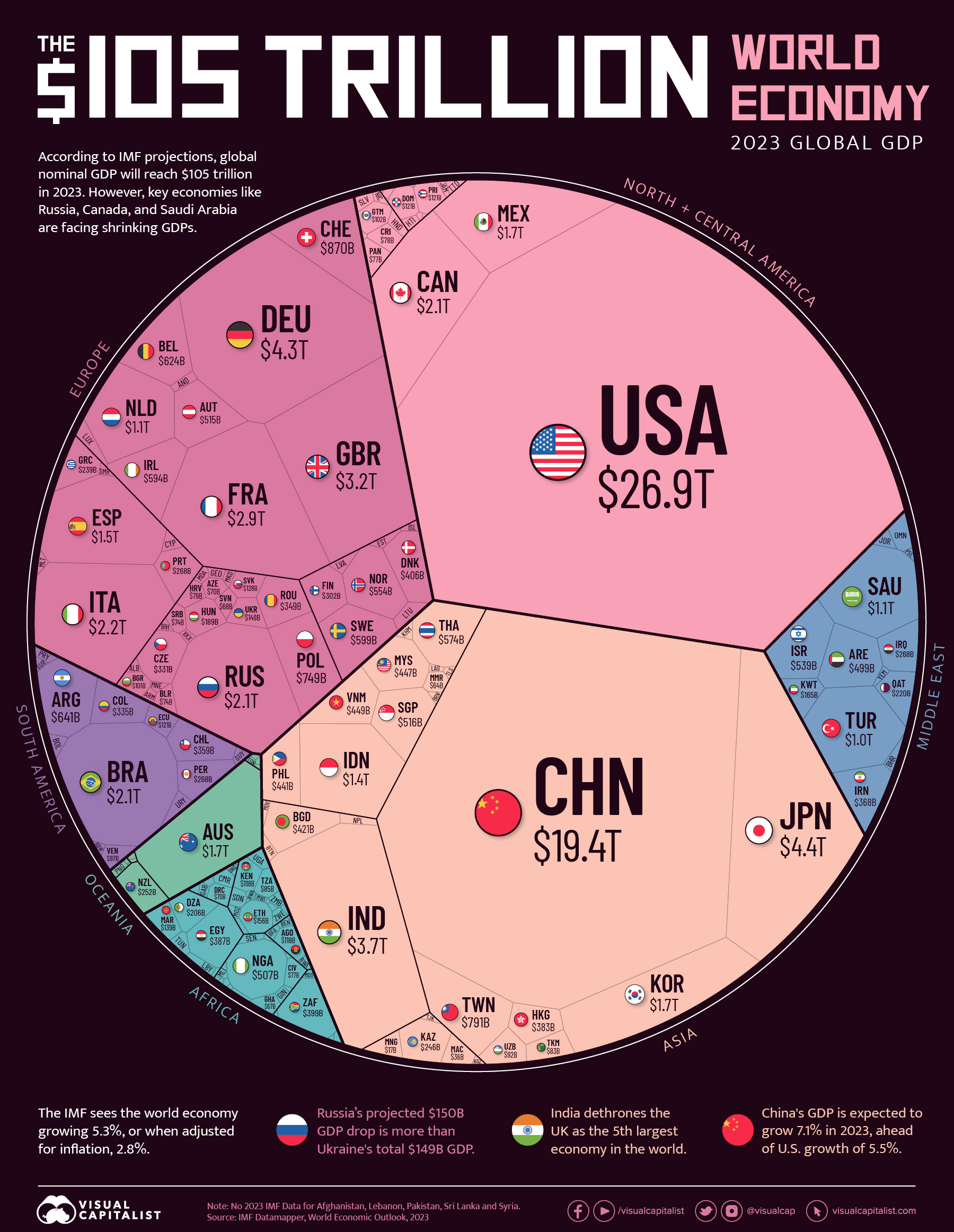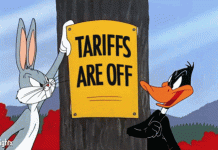 Here we go again!
Here we go again!
China’s recent unveiling of a sweeping stimulus package signals Beijing’s growing concern over its slowing Economy and waning Investor Confidence. The measures, announced by PBOC Governor, Pan Gongsheng, include Interest Rate Cuts, Reduced Reserve Requirements, Liquidity Support for the stock market, and a significant boost to the struggling Property Sector.
The policy blitz, while welcomed by analysts, has sparked a debate about its long-term effectiveness. While it may temporarily boost market sentiment and put China’s 5% growth target back within reach, doubts remain about whether it’s enough to address China’s deeper structural issues and reignite Consumer Demand.

 The Stimulus Package reflects a delicate balancing act for Chinese policymakers. On one hand, they are trying to revive growth without resorting to the massive stimulus programs of the past. On the other, they face mounting pressure to address the prolonged Property Slump, Declining Corporate Profits, and Rising Youth Unemployment.
The Stimulus Package reflects a delicate balancing act for Chinese policymakers. On one hand, they are trying to revive growth without resorting to the massive stimulus programs of the past. On the other, they face mounting pressure to address the prolonged Property Slump, Declining Corporate Profits, and Rising Youth Unemployment.
The central bank’s decision to cut a key short-term interest rate and lower the reserve requirement ratio aims to inject liquidity into the financial system and encourage lending. However, the effectiveness of these measures hinges on whether businesses and consumers are willing to borrow and spend in an environment of great uncertainty.
The move to lower borrowing costs on Mortgages and ease Down-Payment Requirements for Second-Home Purchases is a direct attempt to revive the beleaguered Property Market. While this may provide some short-term relief, it’s unclear whether it will be enough to reverse the downward trend in Home Sales and Prices.
The liquidity support for the stock market, including a potential Stabilization Fund, is aimed at boosting Investor Confidence and stemming the selloff in equities. However, analysts caution that this alone may not be enough to sustain a market rally in the absence of stronger Economic Fundamentals.
The global impact of China’s stimulus is also a key consideration. The move has already spurred risk appetite in global markets, with European stocks, U.S. Equity Futures, and Commodities all seeing gains. However, analysts warn that the European Economy, which is facing its own slowdown, may not see immediate benefits from China’s stimulus.

China’s stimulus package represents a calculated gamble to revive its economy and restore Investor Confidence. While the initial market reaction has been positive, the long-term impact remains uncertain. The effectiveness of these measures will depend on a range of factors, including Consumer and Business Sentiment, the health of the Property Market, and the Global Economic Outlook.
That means we need to take today’s market rally with a grain of salt as China is shoveling in a good $500Bn but that’s just 2.5% of their GDP on top of the 7.1% deficit they are already running this year (don’t scoff – it’s the same as the US). Like the US, China’s Interest on Debt is becoming a major part of their annual budget (ours is now $1Tn/yr) while debt service is now gobbling up 1/3 of Japan’s budget and, this year, Japan’s GDP dropped to $4Tn and India’s GDP rose over $4Tn – so India now has a bigger economy than Japan.
 That won’t happen with the US and China as we’re both sliding down the same economic drain together and, if you want to know why China can’t/won’t be able to save themselves – look no further today’s news about a prominent Economist at one of China’s top think tanks, who was placed under investigation, detained and removed from his posts after he criticized Xi Jinping’s management of the economy – NOT at his University – but in a “private” WeChat Post.
That won’t happen with the US and China as we’re both sliding down the same economic drain together and, if you want to know why China can’t/won’t be able to save themselves – look no further today’s news about a prominent Economist at one of China’s top think tanks, who was placed under investigation, detained and removed from his posts after he criticized Xi Jinping’s management of the economy – NOT at his University – but in a “private” WeChat Post.
Under Xi, the party has directed a far-reaching clampdown on dissent that has punished critics of his leadership inside the party and beyond, with some high-profile targets, including influential business people and academics, getting detained, imprisoned or forced into exile. Authorities have also tightened controls on data, curtailing access to information prized by investors and analysts for insights into China’s economy.
This month, Xi’s top lieutenants urged officials to “promote the bright prospects of China’s economy.” Those calls came after an unusual warning from China’s top spy agency in December, which cautioned the public to be wary of those who denigrate the economy. “Economic Security is a key component of National Security,” the Ministry of State Security said.
 One recent commentary that disappeared in an Internet Scrubbing (Ministry of Truth?) was an editorial published last month by Caixin Media, a Beijing-based business news outlet known for backing pro-market reforms. The Editorial called for officials to confront economic challenges directly, harking back to when China’s economy was on the brink of collapse during the Cultural Revolution of the 1960s and 1970s.The editorial said that, at the time, officials insisted that “the situation is excellent,” but in reality people were destitute.
One recent commentary that disappeared in an Internet Scrubbing (Ministry of Truth?) was an editorial published last month by Caixin Media, a Beijing-based business news outlet known for backing pro-market reforms. The Editorial called for officials to confront economic challenges directly, harking back to when China’s economy was on the brink of collapse during the Cultural Revolution of the 1960s and 1970s.The editorial said that, at the time, officials insisted that “the situation is excellent,” but in reality people were destitute.
The article urged officials to “seek truth from facts,” quoting an ancient Chinese aphorism that was frequently invoked by Mao Zedong and especially by his successor Deng Xiaoping, who ushered in four decades of reform and opening.
“One can only correct inappropriate policies in a timely manner if one sticks to seeking truth from facts,” read the unsigned article, which was published on Dec. 25, a day before the 130th anniversary of Mao’s birth.
Within hours, the editorial disappeared from Caixin’s website. A representative for Caixin declined to comment.
The disappearance of Li Xunlei’s column and the subsequent silencing of his online presence demonstrate the government’s intolerance for any discussion that challenges its rosy picture of the economy. This mirrors the Party’s practice of “vaporizing” individuals or information that threatens its power.
 Similarly, the government’s warnings against “negative commentaries on the economy” on platforms like Weibo echo the Thought Police’s constant surveillance and suppression of dissenting thoughts in “1984“. The message is clear: any deviation from the official narrative is unacceptable.
Similarly, the government’s warnings against “negative commentaries on the economy” on platforms like Weibo echo the Thought Police’s constant surveillance and suppression of dissenting thoughts in “1984“. The message is clear: any deviation from the official narrative is unacceptable.
The involvement of Law Enforcement and the spy agency in shaping the Economic Discourse further reinforces the Orwellian parallels. The Ministry of State Security’s portrayal of economic commentary as a “discourse trap” and a tool for “strategic containment and suppression” evokes the Party’s paranoia and obsession with controlling information while also preventing any real discussion on how to actually make the situation better and the SITUATION, mind you is that 70% of China’s population (still 1Bn people) live on 2,000 Yuan ($280) per month or less!
Just as in “1984”, the Chinese government’s attempts to control the narrative are likely to backfire. As economist Mark Williams points out, censorship can only provide a temporary illusion of stability. In the long run, the Confidence of Consumers and Investors is determined by the reality of the Economic situation, not by Government propaganda.
China’s leadership is becoming increasingly anxious about the country’s Economic woes. The crackdown on information and commentary reflects their fear of losing control of the narrative and the potential for social unrest. In stifling debate and discouraging critical analysis, the Government risks making policy mistakes and exacerbating the very problems it’s trying to hide and, as we learned from Covid – when China catches a cold – the whole world gets sick!
The parallels to “1984” serve as a chilling reminder of the dangers of unchecked government control over information and the importance of a free and open exchange of ideas. While China’s Economic challenges are real, the government’s response raises serious questions about its commitment to transparency and accountability.








